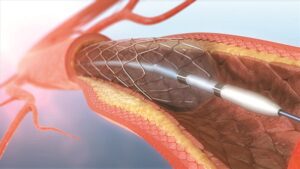What are Tumour Markers?
Tumour markers are substances that are produced by cancer cells or by the body in response to cancer. These markers can be detected in blood, urine, or tissue samples. While tumour markers can be elevated in people with cancer, they can also be elevated in non-cancerous conditions or even in healthy individuals.
Common Tumour Markers in Digestive Cancers
In digestive cancers, several tumour markers may be elevated. Some of the most common ones include:
CEA (Carcinoembryonic Antigen)
Elevated levels of CEA can be found in colorectal cancer, serving as a crucial biomarker for disease detection and monitoring. Additionally, elevated CEA levels may indicate the presence of other gastrointestinal cancers such as pancreatic, stomach, and liver cancer, aiding in comprehensive cancer management and treatment planning.
Regular monitoring of CEA levels in individuals with digestive cancers can help assess treatment response and disease progression, guiding adjustments in therapy as needed.
CA 19-9 (Carbohydrate Antigen 19-9)
CA 19-9 levels may be elevated in pancreatic cancer, making it a valuable marker for disease detection and prognosis. Furthermore, CA 19-9 levels can also be elevated in other gastrointestinal cancers, including bile duct cancer and gastrointestinal malignancies, providing additional diagnostic information and guiding treatment decisions. Monitoring CA 19-9 levels over time can help healthcare providers evaluate treatment response, assess disease recurrence, and make informed decisions regarding further interventions or therapies.
CA 125 (Cancer Antigen 125)
While CA 125 is commonly associated with ovarian cancer, elevated levels of this tumour marker can also be observed in gastrointestinal cancers, particularly those affecting the stomach and colon. The detection of elevated CA 125 levels in individuals with gastrointestinal malignancies can aid in disease diagnosis, staging, and monitoring, complementing other diagnostic modalities such as imaging studies and biopsies.
Incorporating CA 125 testing into the comprehensive management of digestive cancers allows healthcare providers to obtain a more comprehensive understanding of the disease status and tailor treatment strategies accordingly, optimizing patient outcomes and quality of life.
What Does an Elevated Tumour Marker Mean?
It’s important to note that an elevated tumour marker does not necessarily mean you have cancer. Elevated levels can occur due to various reasons, including inflammation, infection, benign tumour or other non-cancerous conditions. However, in some cases, elevated tumour markers can indicate the presence of cancer or the recurrence of cancer after treatment.
When Should You Get Tested?
Your doctor may recommend tumour marker testing if you have symptoms suggestive of cancer, such as unexplained weight loss, persistent pain, changes in bowel habits, or abnormal imaging findings. Additionally, tumor marker testing may be used for monitoring cancer treatment or for surveillance in individuals with a history of cancer.
What to Do if You Have Elevated Tumour Markers
If you have elevated tumour markers, it’s essential to take proactive steps to address the underlying cause and manage your health effectively. Here’s what you can do:
- Schedule an appointment with your healthcare provider to discuss your elevated tumor markers. Your doctor will review your medical history, perform a physical examination, and may order additional tests to further evaluate the source of the elevated markers
- Your doctor may recommend follow-up testing, such as imaging studies (CT scan, MRI), biopsies, or other diagnostic procedures, to determine the underlying cause of the elevated tumor markers and assess the extent of any associated disease.
- Depending on the results of your diagnostic tests and the underlying condition, your healthcare provider will discuss treatment options with you. This may include surgery, chemotherapy, radiation therapy, targeted therapy, immunotherapy, or other interventions tailored to your specific diagnosis and medical history.
- Adopt a healthy lifestyle that can support your overall well-being and complement medical treatments. This includes eating a balanced diet rich in fruits, vegetables, whole grains, and lean proteins, staying physically active, maintaining a healthy weight, managing stress, getting adequate sleep, and avoiding tobacco and excessive alcohol consumption.
Elevated tumour tumor markers can be a concerning finding, but they don’t always indicate cancer. It’s essential to work closely with your healthcare provider to understand the significance of elevated tumor markers in your specific situation. Further evaluation and testing may be necessary to determine the cause of elevated levels and develop an appropriate treatment plan if needed. Remember, early detection and treatment offer the best chance for successful outcomes in cancer care.
If you have any concerns or questions about elevated tumor markers or cancer screening, don’t hesitate to reach out to our clinic. Your proactive involvement in your healthcare journey can make a significant difference in your overall health and well-being.



























